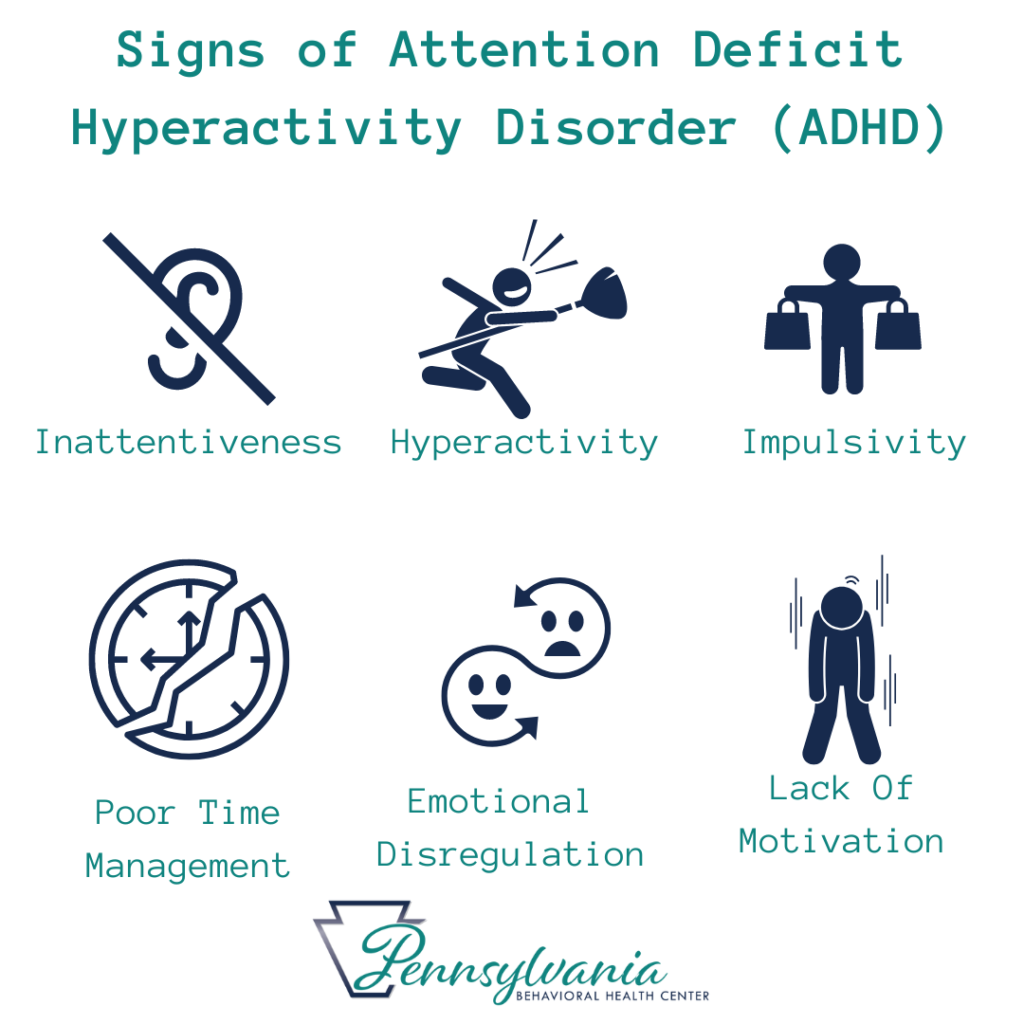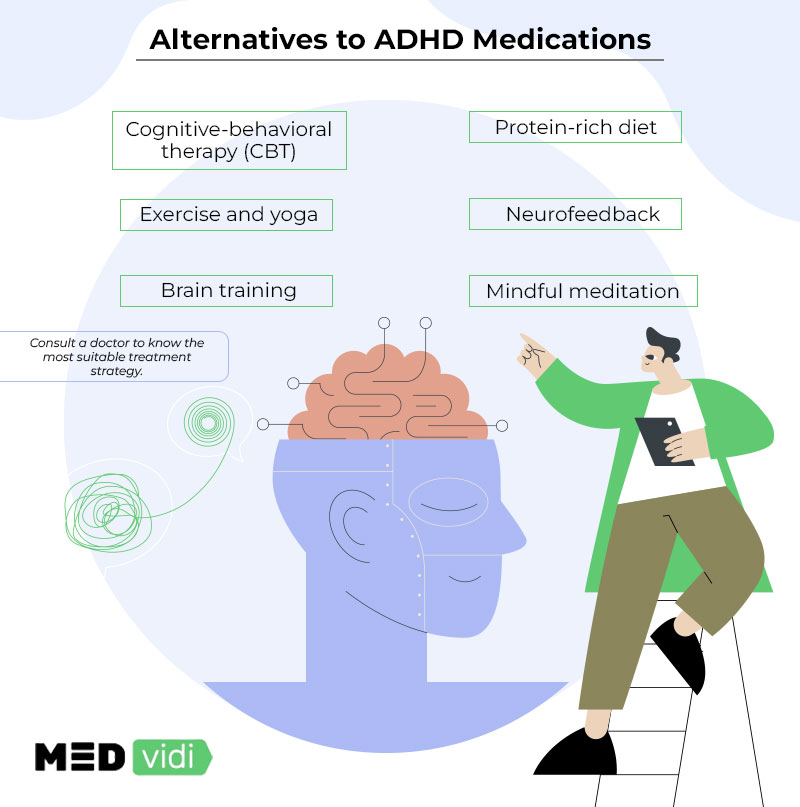Checking Out Effective ADHD Treatment Choices for All Ages
The complexities of Focus Deficiency Hyperactivity Condition (ADHD) present distinct challenges across various age groups, demanding a comprehensive expedition of efficient therapy choices. A mix of behavioral treatments, pharmacological treatments, and way of life alterations has revealed promise in attending to the diverse demands of people with ADHD.
Understanding ADHD and Its Impact
Attention-Deficit/Hyperactivity Problem (ADHD) is a neurodevelopmental problem identified by relentless patterns of inattention, hyperactivity, and impulsivity that can dramatically impact various aspects of an individual's life. It commonly manifests in childhood, although signs can linger into their adult years. The core signs of ADHD can disrupt instructional performance, impede social communications, and complicate work-related ventures.
People with ADHD frequently battle with preserving concentrate on tasks, organizing tasks, and following up on instructions, which can result in academic underachievement (Depression Treatment). In social contexts, impulsivity may result in troubles in developing and sustaining relationships, as people may disrupt discussions or make hasty decisions without considering effects
In addition, ADHD can co-occur with other psychological wellness conditions, such as stress and anxiety and clinical depression, better complicating medical diagnosis and treatment. The variability in sign presentation implies that ADHD can influence individuals in different ways, necessitating an individualized method to monitoring. Understanding ADHD's multifaceted impact is vital for creating efficient strategies that support people in browsing day-to-day obstacles and attaining their potential. Comprehensive recognition of ADHD's nature and implications lays the foundation for exploring ideal treatment alternatives tailored to each individual's requirements.
Behavioral Therapies for ADHD
Many behavioral therapies have actually been developed to properly resolve the obstacles related to ADHD, concentrating on modifying certain actions and fostering vital abilities. Among one of the most recognized techniques are cognitive-behavioral therapy (CBT), parent training, and social skills training.
CBT assists people identify and alter unfavorable thought patterns and habits, advertising an extra positive expectation and boosted self-regulation. This treatment frequently consists of functional methods for managing impulsivity and boosting organization. Moms and dad training programs equip caretakers by outfitting them with methods to reinforce favorable actions and set consistent boundaries, which can be especially useful for youngsters with ADHD.
Social skills training is one more essential part, training people with ADHD just how to communicate effectively with peers - Depression Treatment. This technique often includes role-playing and comments to boost communication, collaboration, and problem resolution abilities
Incorporating these behavioral treatments into an extensive therapy strategy can dramatically enhance functioning and lifestyle for people with ADHD. Eventually, the performance of these treatments relies on tailored strategies that think about the one-of-a-kind needs of each individual, thereby fostering resilience and flexibility in day-to-day live.
Drug Options Available
For numerous individuals with ADHD, have a peek at this site medication can play a considerable function in handling signs and symptoms and boosting overall functioning. The two main categories of drugs recommended for ADHD are energizers and non-stimulants.
Stimulants, such as methylphenidate and amphetamine-based medications, are one of the most generally used therapies. These drugs function by enhancing the degrees of natural chemicals, especially dopamine and norepinephrine, in the mind, which assists improve focus and lower impulsivity and hyperactivity. They often generate quick outcomes, making them a recommended choice for numerous patients.

It is crucial for doctor to conduct a comprehensive evaluation to figure out the most ideal medicine based upon specific demands, case history, and possible adverse effects. Regular follow-up and tracking are additionally vital to make sure the performance of the selected therapy and to make any necessary modifications.
Lifestyle Changes to Consider
Managing ADHD efficiently expands past medicine, as way of living changes can significantly boost total wellness and signs and symptom control. Integrating structured routines is crucial; constant timetables aid individuals with ADHD manage their time properly and lower sensations of overwhelm.
Routine exercise is an additional important component. Workout not just helps to boost focus however likewise improves mood and reduces tension degrees. Activities such as yoga or group sports can be specifically helpful, promoting both fitness and social communication.
Nourishment also plays an essential function. Depression Treatment. A well balanced diet regimen rich in omega-3 fatty acids, whole grains, and lean proteins can add to boosted emphasis and cognitive feature. Limiting sugar and refined foods is suggested, as these can aggravate hyperactivity and impulsivity
Sleep health is important for taking care of ADHD signs. Developing a routine sleep routine and developing a restful setting can boost rest high quality, depression anger leading to much better attention and psychological guideline.
Alternative and Alternative Techniques
Alternate and alternative techniques to ADHD treatment use a varied series of choices that complement standard techniques. These methods commonly concentrate on way of living modifications, dietary interventions, and therapeutic methods that intend to improve general health while dealing with ADHD symptoms.

Mindfulness and behavior modifications are also getting grip as holistic treatments. Practices such as yoga, meditation, and cognitive-behavioral treatment can cultivate self-regulation and enhance focus. These techniques sustain emotional resilience, which is particularly useful for individuals with ADHD.
Herbal supplements, such as ginkgo biloba and ginseng, are sometimes discovered; nevertheless, it is crucial to seek advice from healthcare specialists prior to incorporating these into therapy plans. While option and alternative techniques can offer important assistance, they ought to ideally be made use of in combination with evidence-based treatments to attain ideal results for taking care of ADHD across every ages.
Conclusion
In recap, efficient ADHD therapy requires a comprehensive technique that consists of behavior modifications, medicine, way of life modifications, and all natural techniques. Customized treatments can substantially enhance people' working and lifestyle, while ideal medicine makes certain optimum signs and symptom monitoring. Moreover, taking on organized regimens, involving in regular physical task, and practicing mindfulness can boost emotional law and attention. This multifaceted method emphasizes the importance of customized treatment in dealing with the varied demands of individuals with ADHD across any age groups.